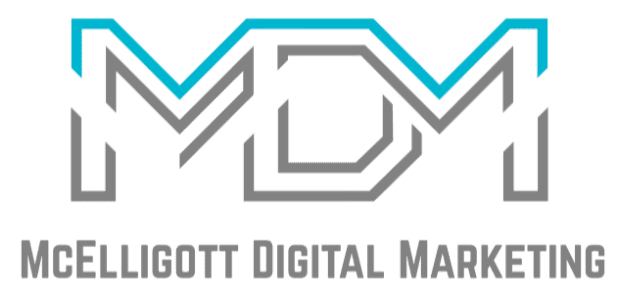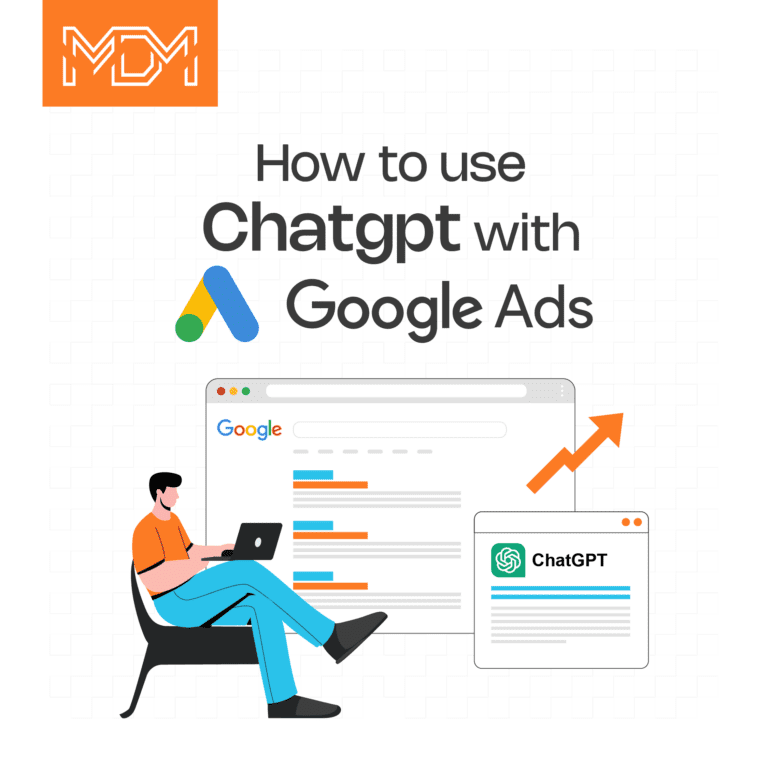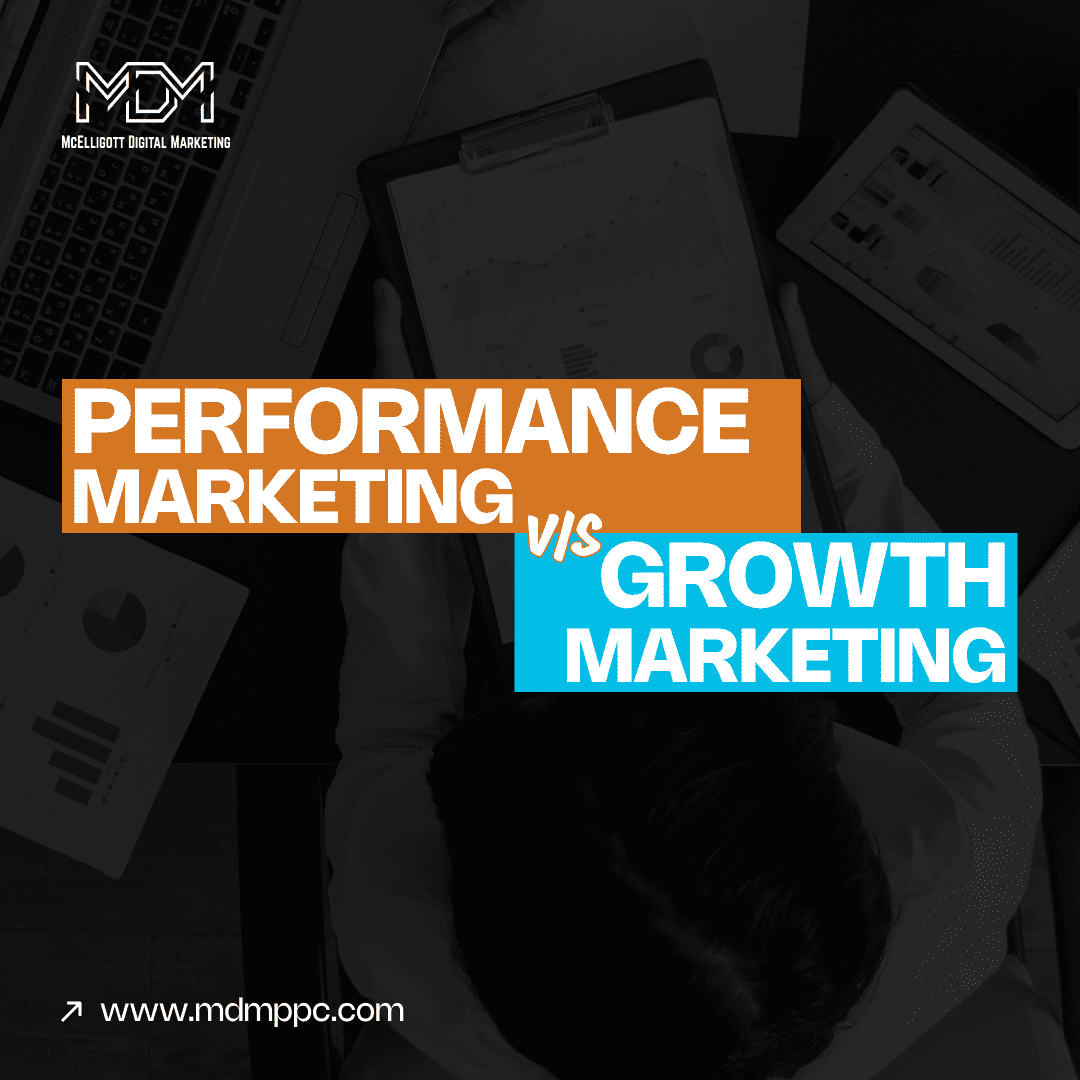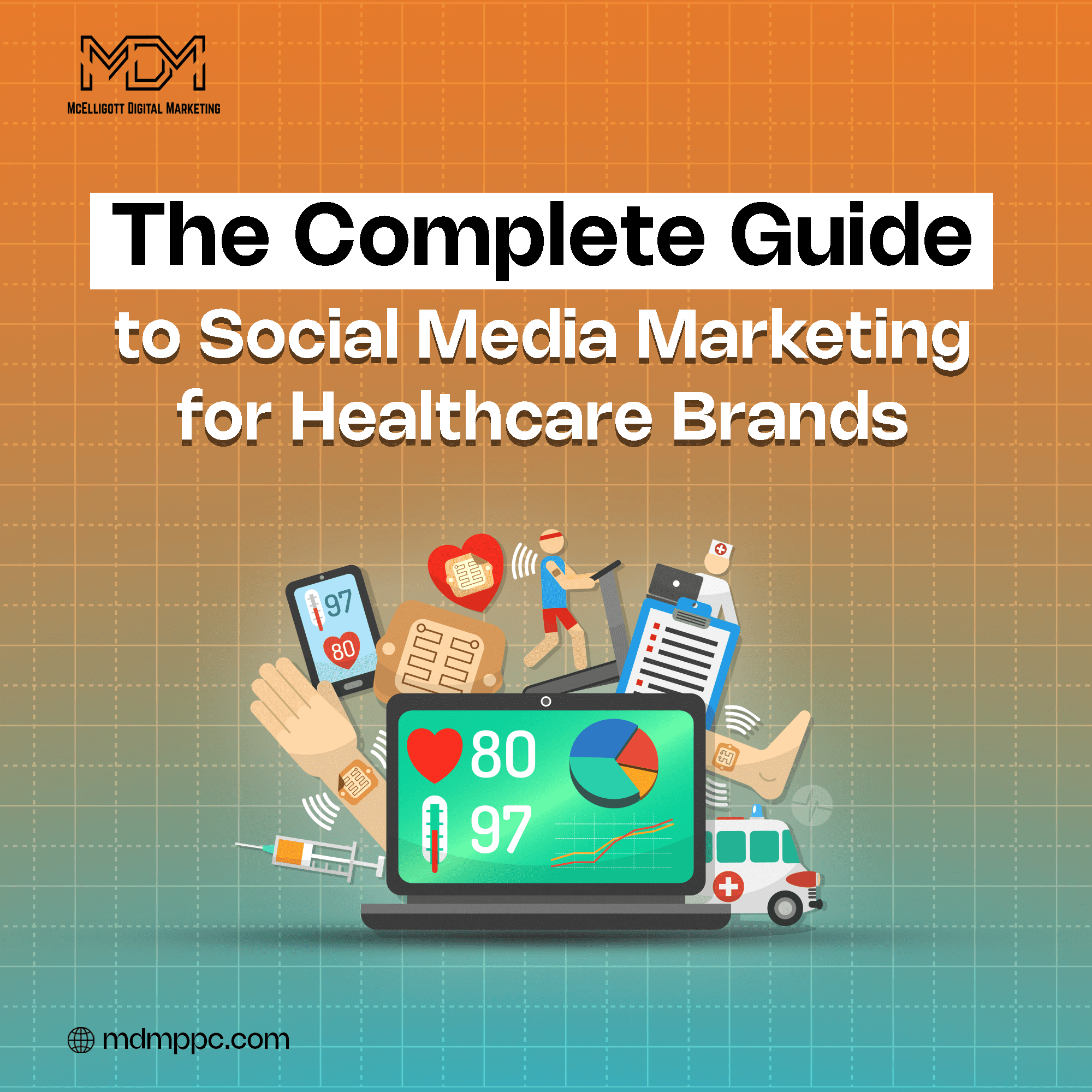Since its introduction, ChatGPT has made human efforts easier. Whether it’s to identify patterns, determine whether mundane tasks take longer when done manually, or summarize large text, ChatGPT has proven to be of great value.
While ChatGPT is not integrated directly with the Google Ads platform, marketers rely heavily on Google Ads’ generative AI to write ad copies, get keyword suggestions, try out different versions of ad copies, and more. All you need is a Gmail account to log in to ChatGPT and know the right ChatGPT prompts for Google Ads.
ChatGPT is a versatile and powerful tool for marketers. It enhances Google Ads and Pay-Per-Click (PPC) campaigns. ChatGPT offers assistance in multiple ways. You can use it to craft compelling ad copy, generate creative ideas, and analyze audience behavior. It also refines content for clarity and impact.
In this blog, you will learn to make the most of ChatGPT for Google Ads, with our collection of AI-driven prompts. These prompts are going to transform your ad strategies and improve your marketing approach.
12 ChatGPT prompts for Google Ads
Success with Google Ads relies on precision, creativity, and strategy. ChatGPT can help marketers achieve their goals in many ways. It simplifies tasks, boosts efficiency, and can help you increase your Google Ads ROI. Whether you want personalized ad experiences, engaging content, or smoother workflows, ChatGPT has got you covered.
Here are 12 actionable prompts to improve your Google Ads campaigns. They are grouped into three categories:
- Personalization
- Content Creation
- Workflow Optimization
Personalization
Without personalization, advertising cannot be effective. With ChatGPT, you can modify your messaging to click with specific audience segments. Here are four prompts to help you craft highly personalized Google Ads:
1. Audience-specific messaging
Prompt–
“Create a Google Ad targeting young professionals interested in sustainable fashion. Highlight affordability, eco-friendliness, and a modern aesthetic.”
This prompt makes sure that your ad speaks directly to a niche audience by addressing their values and interests, enhancing engagement rates.
2. Localized campaigns
Prompt–
“Write a video ad for a bakery in New York City that promotes its fresh artisan bread and offers a free sample to first-time customers.”
Google Ads for YouTube channel can help you grow your business locally. Localized ads focus on a specific geographic area. They make customers feel connected to the brand. This approach builds trust and attracts local buyers.
3. Lifestyle-centric ads
Prompt–
“Develop a Google Ad targeting fitness enthusiasts who prefer home workouts. Mention convenience, cost-effectiveness, and high-quality equipment.”
These ads align with a specific lifestyle. They directly appeal to the goals and habits of your target audience. By addressing their needs, you create a strong connection.
4. Event-specific promotions
Prompt–
“Craft an ad for a tech store offering discounts on laptops during the Back-to-School season. Include a sense of urgency and benefits for students.”
Event-based ads take advantage of timely relevance. They motivate customers to act quickly. Highlighting the event and urgency boosts engagement and sales.
ChatGPT prompts for Google Ads for content creation
The success of a Google Ad depends on its content. High-quality ad copies drive clicks and conversions. ChatGPT helps create compelling, concise, and optimized ads.
Here are the next four prompts to improve your content creation.
5. A/B testing ad variations
Prompt–
“Write three variations of a Google Ad for an online meal delivery service. Focus on speed, affordability, and health benefits.”
Testing different ad variations helps identify what your audience prefers. It improves ad performance by focusing on what resonates most.
6. Attention-grabbing headlines
Prompt–
“Generate 10 catchy headlines for a Google Ad promoting a luxury skincare brand. Emphasize anti-aging benefits and natural ingredients.”
Strong headlines capture attention quickly. They increase click-through rates and draw more users to your website.
7. Call-to-action (CTA) optimization
Prompt–
“Create 5 CTAs for a Google Ad that promotes a free eBook on digital marketing strategies. Focus on driving downloads.”
Clear and compelling CTAs encourage users to take specific actions. This drives engagement, downloads, and conversions.
8. Feature and benefit highlighting
Prompt:
“Write an ad for a smartphone highlighting its key features, such as a long-lasting battery, fast performance, and an affordable price.”
Highlighting features while emphasizing benefits shows customers the product’s value. This approach appeals to both practical needs and emotional desires.
Prompts for workflow optimization
Efficient workflows save time and resources. They also maximize campaign results. ChatGPT can help refine processes, test ads, and find high-performing keywords.
Here are four prompts to improve workflow optimization.
9. Keyword generation
Prompt–
“Generate a list of 20 high-performing keywords for a Google Ads campaign promoting an online language learning platform.”
ChatGPT suggests keywords that match your niche. This improves ad targeting and ensures relevance to your audience.
10. Negative keyword identification
Prompt–
“Suggest 15 negative keywords to use in a campaign for a luxury car dealership to avoid irrelevant clicks.”
Negative keywords prevent your ad from showing to the wrong audience. This saves your budget and focuses it on relevant traffic.
11. Performance analysis assistance
Prompt–
“What are some questions I should ask when analyzing the performance of my Google Ads campaign for an eCommerce store?”
ChatGPT can help you identify key metrics to analyze, and boost your eCommerce PPC strategy. It highlights areas for improvement, leading to better decisions.
12. Ad campaign Troubleshooting
Prompt–
“My Google Ads campaign for a new fitness app isn’t converting well. Provide suggestions to improve its performance.”
This prompt helps ChatGPT act as a virtual consultant. It provides actionable tips to refine and optimize your campaign.
How ChatGPT can transform your marketing approach
Artificial intelligence (AI) is changing the world of digital marketing. Among AI tools, ChatGPT stands out. It is changing the way marketers run their campaigns. With ChatGPT, you can improve creativity, efficiency, and precision. It helps create content, analyze audience behavior, and optimize workflows. This makes it easier to improve marketing strategies in ways that were not possible before.
Examples of improved ad strategies
1. Personalized ad copy
ChatGPT is great at creating personalized ad copy. Instead of using the same message for everyone, you can now customize ads. You can tailor these ads to the specific needs and preferences of your target audience. For example, a luxury skincare brand could use ChatGPT to create different ads for different audience groups.
Some ads are used to target eco-conscious buyers, others could appeal to budget-conscious shoppers, and some could focus on high-end product seekers. Personalizing ads in this way makes them more effective, leading to higher engagement and better conversion rates.
2. A/B testing for optimization
A/B testing is important for improving Google Ads. ChatGPT makes it easy to run these tests by creating different versions of ad copy.
For example, a fitness company could test different messaging approaches. Some ads could focus on weight loss, while others might highlight fitness goals or community support. ChatGPT can quickly produce many variations of an ad. This allows marketers to test different headlines, descriptions and calls to action. It helps find the best combination for higher results, leading to increased conversions.
3. Dynamic keyword optimization
Keywords are key to Google Ads’ success. Choosing the right keywords makes sure your ad is seen by the right people. ChatGPT can help improve your keyword strategy. It suggests high-performing keywords that match your product or service.
For example, a business offering online language courses could use ChatGPT to find keywords like “learn French online” or “Spanish classes for beginners.” By generating precise keywords, ChatGPT helps ensure your ad reaches the most relevant audience. This improves click-through rates (CTR) and lowers costs.
Benefits of Integrating AI-Driven Tools into Marketing Workflows
4. Increased efficiency
Time is precious in marketing. ChatGPT helps speed up many tasks. It can automate repetitive tasks like content creation and keyword research. This saves time for marketers, letting them focus on bigger-picture strategies.
For example, ChatGPT quickly generates multiple versions of an ad. This is much faster than writing each one manually. With more time available, marketing teams can experiment with different strategies. This is especially important in fast-moving markets.
5. Data-driven insights for better decision-making
ChatGPT provides actionable insights based on campaign performance. Instead of guessing, marketers can make decisions based on real data.
For example, if an ad isn’t performing well, ChatGPT analyzes the ad copy, keywords, and targeting. It will suggest improvements. By analyzing lots of data, ChatGPT helps marketers make better decisions, improving campaign results.
6. Cost savings
Marketing budgets are often limited. It’s important to get the most out of every dollar spent. ChatGPT helps reduce waste by making campaigns more efficient. It can optimize keyword choices, ad copy, and audience targeting. This leads to better results with fewer resources.
ChatGPT also helps minimize the risk of wasted spend. It suggests changes to optimize campaigns, reducing the need for costly fixes during a campaign.
Innovation, precision, and better results with ChatGPT
7. Innovation in ad creation
Innovation is key in digital marketing. ChatGPT can help marketers come up with new ad ideas. It can suggest fresh messaging strategies and angles. For example, ChatGPT recommends including trending topics or viral themes in ads. By generating new ideas continuously, ChatGPT helps marketers keep their campaigns creative and engaging.
8. Precision in targeting and messaging
A well-targeted ad will perform better than a generic one. ChatGPT helps marketers refine their targeting and messaging. It uses audience data to create more relevant ad copy.
ChatGPT ensures that ads speak directly to the right audience based on location, interests, behavior, or demographics. This tailored approach improves ad performance and maximizes ROI.
9. Continuous optimization
ChatGPT makes it easier to optimize campaigns continuously. You can use the tool to analyze campaign performance, try new ideas, and adjust strategies.
This allows you to keep up with changing consumer behavior and trends. By constantly refining campaigns, you ensure long-term success and better results over time.
Conclusion
While ChatGPT can do a lot, it can’t replace human creativity. Use ChatGPT as your assistant. It can handle tasks like generating ad copy or analyzing performance, but you’re still the one who makes the final decisions.
ChatGPT can optimize your campaigns in so many ways. It helps you create better ad copy, find the right keywords, and understand your audience. But the key is to tailor ChatGPT’s prompts to fit your goals. The more specific you are, the better results you’ll get.
Combining AI’s efficiency with your creativity can take your Google Ads to the next level.
However, as a business owner, you may not have time to try out generative AI with Google Ads and more such tools. What you ultimately need is more leads and brand awareness for your business. That’s where McElligott Digital Marketing comes to your help.
Our PPC experts take care of your online advertising needs, right from creating ads to managing them. Let us connect to discuss more.
Book a FREE Google Ads consultation today at (833) 772-4897.
ChatGPT for Google Ads FAQs
1. What is ChatGPT’s role in Google Ads campaigns?
ChatGPT helps you by creating personalized ad copy, generating creative ideas, suggesting keywords, refining content, and optimizing workflows for Google Ads campaigns.
2. How can ChatGPT help with ad testing?
With ChatGPT, you can create multiple variations of ad copy for A/B testing, making it easier to test different headlines, descriptions, and calls to action to find the most effective combinations.
3. Is ChatGPT suitable for small businesses using Google Ads?
Absolutely. ChatGPT helps small businesses save time and resources by streamlining ad creation, keyword research, and campaign optimization, making it an effective tool for businesses with limited marketing budgets.
4. How do I integrate ChatGPT with my Google Ads account?
While ChatGPT is not directly integrated into Google Ads, you can use it to create content, refine ads, and optimize campaigns. You’ll need to manually apply ChatGPT’s suggestions in your Google Ads account.





